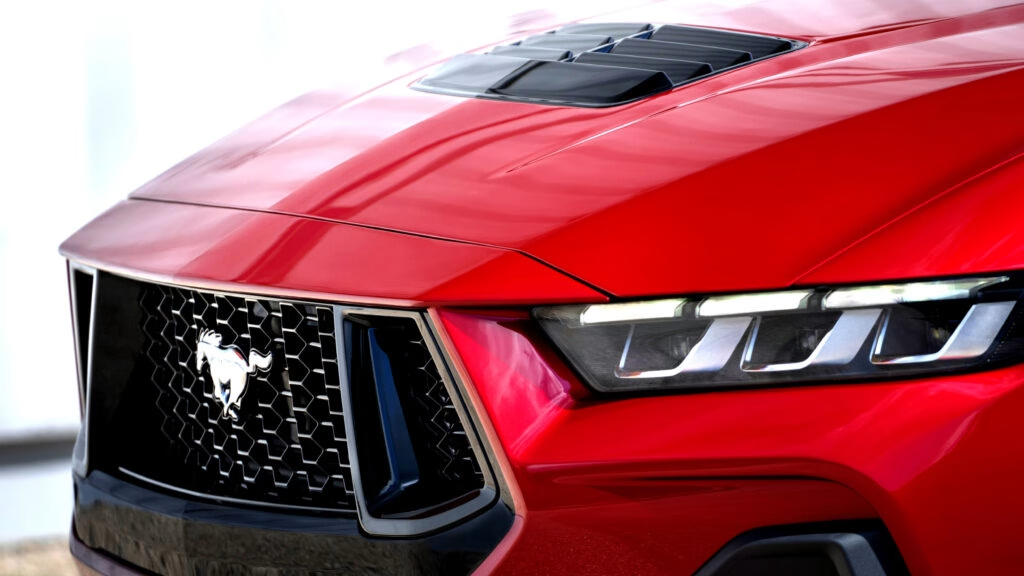Why Are Over 100,000 Ford Mustangs Being Recalled Right Now?
If you own a 2024 or 2025 Ford Mustang, you might want to check your mailbox soon. Ford is recalling more than 105,000 Mustangs due to a pesky water leak that can cause exterior lights—like your taillights, side markers, and license plate light—to stop working. Not exactly what you want when you’re cruising home at night. This recall is part of a much larger wave: Ford has recalled over 1.2 million vehicles in just the past few days, with this Mustang issue being one of five separate problems flagged by the company and federal safety regulators.
What’s Actually Causing the Lighting Problems?
Let’s break it down. The root of the issue is water sneaking into the car’s body control module, thanks to poorly sealed seams around the cowl top and lower windshield corners. Imagine rainwater finding its way into the car’s electrical brain—never a good thing. Once inside, the water can cause the lights to flicker, fail, or even stay on after you’ve parked and locked up, which can drain your battery. Ford traced the leak to inconsistent application of sealant during assembly, sometimes by robots, sometimes by hand. The result? Pure magic. Except, not the good kind.
Did Ford Know About This Before the Recall?
Here’s where things get a little eyebrow-raising. Ford’s own development team first spotted a headlight issue back in April. They launched an internal investigation after noticing more warranty claims about lighting and battery drain, all pointing to—you guessed it—water intrusion. They even found leaks at several spots due to sloppy sealing. But rather than sound the alarm, Ford closed the investigation, arguing that the problem was rare and the cars still met safety standards. Only after more evidence piled up, and it became clear the leaks were happening faster and more often than expected, did Ford reopen the case and issue the recall. According to the National Highway Traffic Safety Administration, there have been at least 69 warranty claims and 17 field reports tied to this problem.
How Will Ford Fix the Issue—and When?
Here’s the kicker: there’s no fix available just yet. Ford says a repair is coming, but not until the first quarter of 2026. That’s a long wait if you’re worried about your lights going out. When the fix is ready, dealers will inspect and reseal the affected seams and check the body control module for corrosion, replacing it if necessary. Owners will get an initial letter in September explaining the situation, and a second letter when the repair is available. Until then, you’ll have to keep an eye on your lights and maybe avoid driving in heavy rain if you can help it.
What Should Mustang Owners Do in the Meantime?
If you’re one of the 105,000+ affected owners, don’t panic—but do stay alert. Watch for any signs of lighting issues, especially after wet weather. If your taillights or license plate lights start acting up, or if you notice your battery draining mysteriously, contact your dealer and report the problem. While there’s no official fix yet, documenting your experience can help Ford and regulators track the scope of the issue. And if you’re planning a long night drive, maybe pack a flashlight—just in case.
How Does This Recall Compare to Other Recent Ford Recalls?
Ford’s recall activity has been off the charts lately. According to data from the National Highway Traffic Safety Administration, Ford has issued more recalls than any other automaker in the US for the past two years running. In 2023 alone, Ford recalled over 3 million vehicles for a variety of issues, from brake fluid leaks to electrical faults. Experts say this reflects both the complexity of modern vehicles and the pressure on manufacturers to catch problems early. Still, it’s a reminder that even iconic models like the Mustang aren’t immune to quality control hiccups.
What Does This Mean for Ford’s Reputation and Mustang Owners?
Let’s be honest: nobody likes getting a recall notice, especially for something as basic as water leaks and lighting. For Mustang fans, it’s a bit of a letdown. But there’s a silver lining—Ford is taking responsibility and working with federal regulators to make things right, even if the fix is taking longer than anyone would like. Industry analysts point out that recalls, while frustrating, are a sign that safety systems are working as intended. The key is transparency and timely communication, both of which Ford is now prioritizing after some initial missteps.
The big takeaway? Car ownership isn’t about perfection—it’s about smarter adjustments. Start with one change this week, like checking your lights after a rainstorm, and you’ll likely spot the difference by month’s end.

